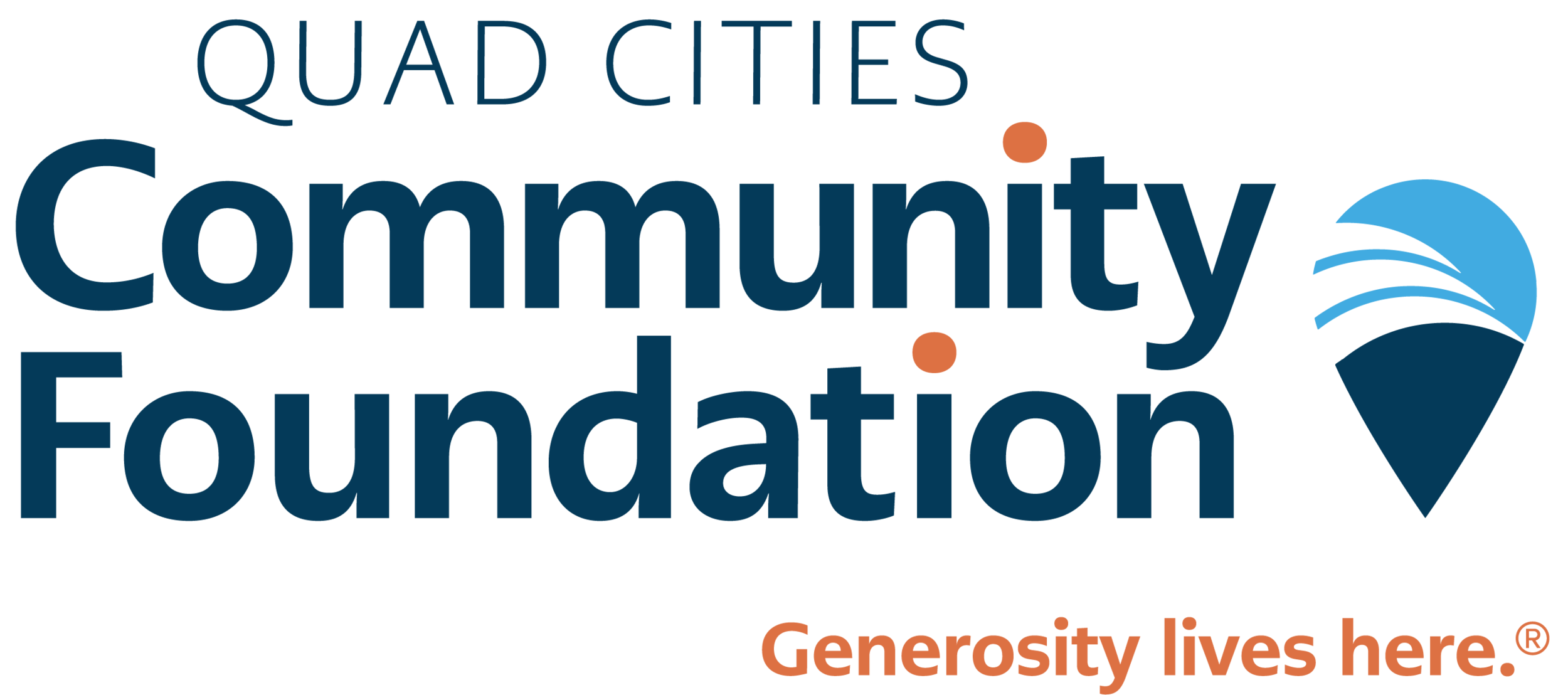How board demographic data helps us evaluate grant applications—and ourselves
By Kelly Thompson / Vice President of Grantmaking and Community Initiatives
Kelly Thompson
If you’ve applied to a grant program from the Quad Cities Community Foundation this year, you’ve noticed some new questions on the application. I so appreciate the conversations many applicants have had with me and our staff about these questions and what they mean.
Following the approach that philanthropic sector leader Guidestar has taken to collecting board demographics on its nonprofit profiles, the Community Foundation has begun to ask for aggregate demographic data for your board in the areas of race/ethnicity, gender identity, and ability status. We provide some guidance and an example survey tool to help you gather that data directly from your board members to make sure the identities are those they claim and not those someone might assume—always leaving them the option not to answer.
As part of living out our organizational commitment to diversity, equity, and inclusion, since 2018 we have been increasingly asking application questions related to equity and inclusion to help our volunteer, community-led committees inform their grant decisions. For many years, we have asked about the demographics of the people you serve and how you serve them. More recently, we have also started asking in a narrative fashion how the people you serve and our community are reflected in your organization’s decisions and leadership. This year, we began to gather information about your leadership in this more prescriptive fashion.
So why are we doing this? And what are we doing with the data we collect? In short, two things:
It’s part of evaluating each individual grant application according to the grant program criteria.
With the aggregate data from all grant applications, it’s also part of how the Community Foundation will evaluate ourselves as a grantmaker at the end of the year.
Evaluating grant applications
Are board demographic data the only thing grant applications are evaluated on? No. But it is one factor contributing to whether the organization or program advances racial and other forms of equity in the Quad Cities region through its actions and its leadership, which is equally weighted with the other evaluation criteria for each grant program.
Why not just focus on who is being served and what services are being provided? Why focus on leadership? Because as in so many other ways, it is leadership that makes the difference when it comes to advancing equity. Many voices are telling the philanthropic and nonprofit sectors that we make better decisions and provide better services when people more proximate to the problem are involved in shaping and leading the response. (On a side note, this is why we endeavor to form grants committees made up of people of diverse backgrounds and experiences – including past and current nonprofit experience – and why we’ll be reporting the same demographic data on our board to Guidestar in our own nonprofit profile.)
We know that every organization is at a different place on this journey – including us! Some organizations are just beginning to look at this need, and some have been led by the people and communities they serve from the start. As we, Guidestar, and other funders we’re speaking to across the country ask for this sort of information, we also want to hear from you about what you find is important in the makeup of your board leadership, as well as the successes and challenges you experience. (If you have thoughts, email me at KellyThompson@QCCommunityFoundation.org.)
Evaluating ourselves
Our sector exemplifies the same biases that every sector does in this society with so many systemic “isms” baked into it. As starkly stated by The Bridgespan Group, “The result is that nonprofit organizations led by people of color receive less money than those led by whites, and philanthropy ends up reinforcing the very social ills it says it is trying to overcome.” The Harvard Business Review says that an equity-focused approach will help not only people who are systematically disadvantaged but our whole community – and we believe that.
So beyond evaluating each individual grant application, this consistent, quantitative data will tell us how we are doing and allow us to make changes to do better. Is our competitive grantmaking representative of our community? Are we, like the rest of our sector, systematically underfunding organizations led by people of color? Are we funding organizations whose leadership reflects the people they serve?
With the varied narrative answers we were asking applicants for, we couldn’t answer these questions. But with this consistent, quantitative data, we will be able to be accountable to our board, and to our community – including all of you – to keep advancing equity in and through the work of the Community Foundation. We look forward to learning, sharing, and continuing to evolve our approach in the years to come.
To learn about the grant opportunities offered through the Quad Cities Community Foundation, visit https://www.qccommunityfoundation.org/grants. The Community Foundation’s staff are always available to answer your questions and hear your thoughts on how we can, collectively, advance racial and other forms of equity in the Quad Cities region. You can reach Vice President of Grantmaking and Community Initiatives Kelly Thompson at kellythompson@qccommunityfoundation.org.

